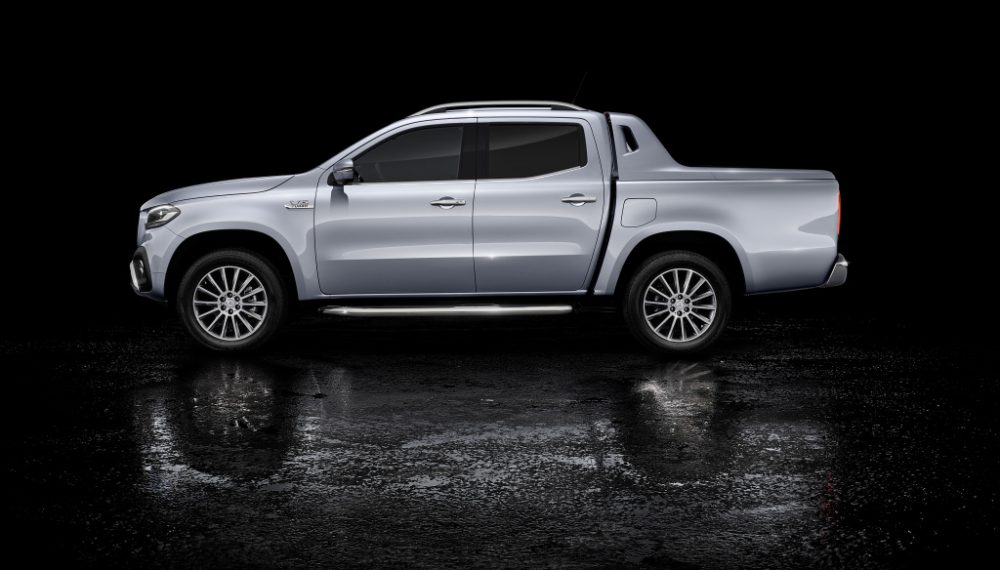Mercedes-Benz was caught testing it’s X-Class midsize pickup amidst ice and snow in the Arctic Circle.
The X-Class is a derivative of the European-market Nissan NP300 Navara and Renault Alaskan. It’s sized to compete with models such as the Ford Ranger and Volkswagen Amarok, which are similar to U.S. models like the Toyota Tacoma.

Spy Shots: Mercedes-Benz’s X-Class Pickup Truck

Spy Shots: Mercedes-Benz’s X-Class Pickup Truck

Spy Shots: Mercedes-Benz’s X-Class Pickup Truck

Spy Shots: Mercedes-Benz’s X-Class Pickup Truck
The Mercedes pickup will be manufactured in a partnership with the Renault-Nissan Alliance, and will likely get mostly diesel powertrains. Production for the European, Australian and South African markets will start at the Nissan plant in Barcelona, Spain, this year. The X-Class for the Latin American market come from a Renault plant in Cordoba, Argentina, in 2018.
It’s undecided on whether Mercedes will bring the new truck to the U.S., however, the company is reportedly studying the option through its Vans division. Sources say the U.S. version would be built in a new factory separate from its Alabama facility and North Carolina Sprinter center.
“The X-Class will set new standards in a growing segment,” said Dieter Zetsche, chairman of Daimler AG, the parent company of Mercedes-Benz.
Mercedes-Benz is looking at the booming market for pickups in the U.S. following the success of established automakers that sold almost 2.7 million trucks last year, or more than 15 percent of a record 17.5 million auto sales.
Sources state that the X-Class will make its way to the U.S. no sooner than 2019.


